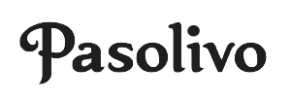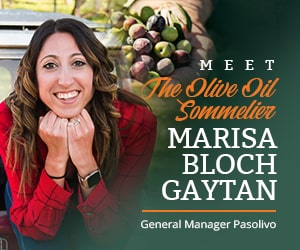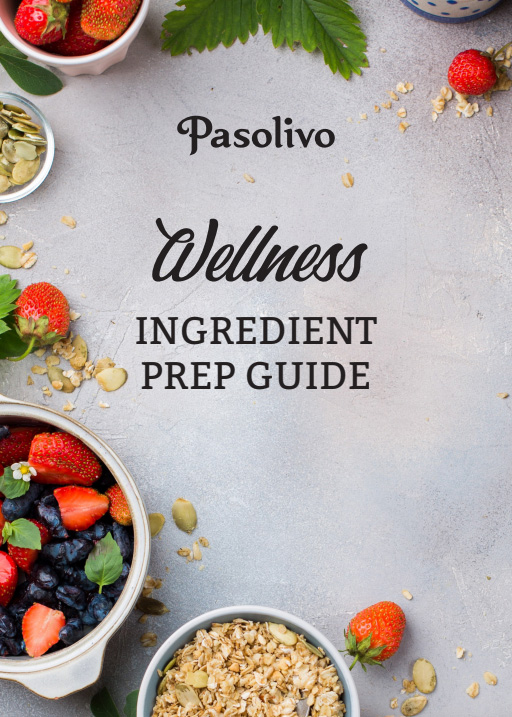Feel-Good Fuel
About 90% of our serotonin is created in our stomach and intestines. It’s synthesized through the essential amino acid tryptophan which is sourced from our diet. It’s commonly found in chicken, eggs, dairy, fish, peanuts, pumpkin and sesame seeds, turkey, and soy products. Consuming high levels of tryptophan and other choice vitamins is a great way to improve mood stability and experience more joy. Talk about feel-good food!
Based on these principles, I created The Serotonin Salad. It features ingredients high in tryptophan and a few other vitamins, minerals, and other compounds known to improve mental health. Let’s go over each featured ingredient and its effect on the brain.
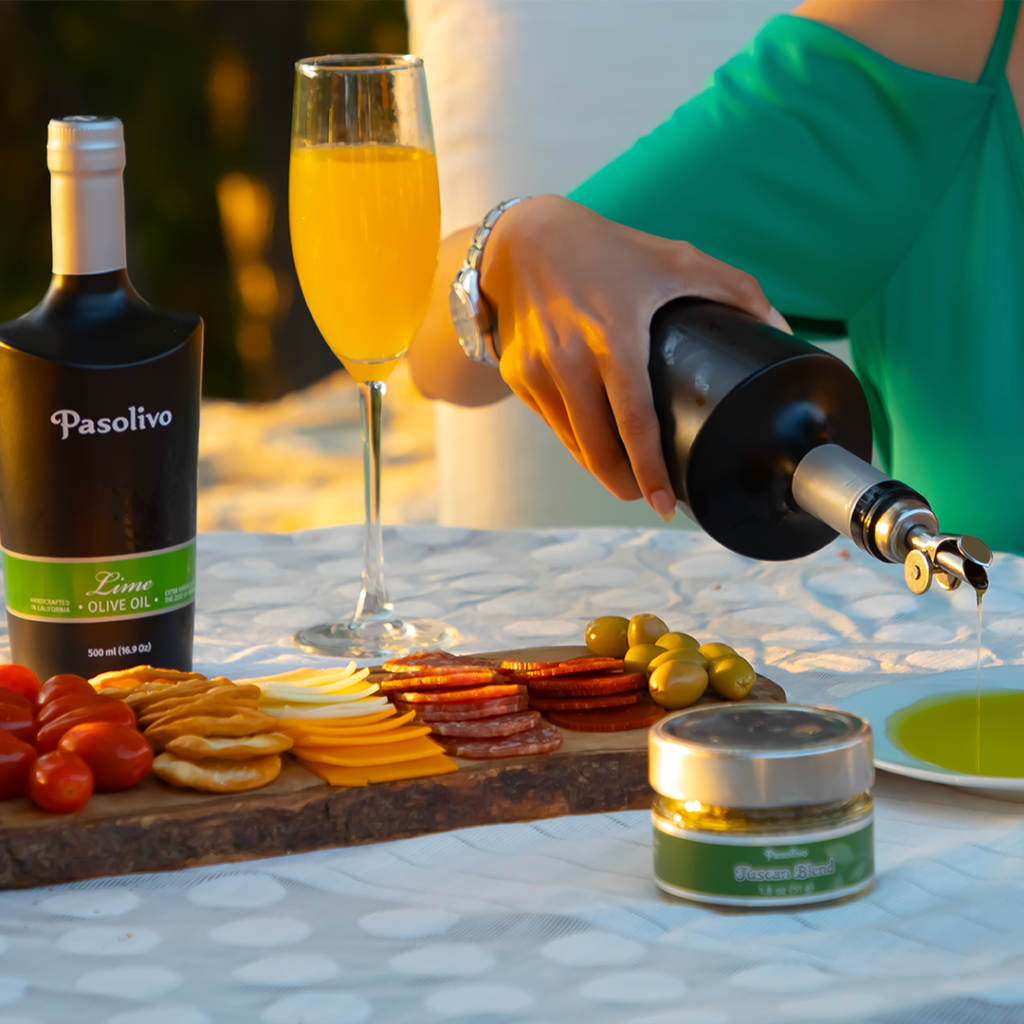
But First: What is Serotonin?
Serotonin, A.K.A “the happy hormone,” is a neurotransmitter that sends messages between your nerve cells. It acts as a natural mood stabilizer. In addition to managing our emotional state, serotonin also plays a role in our ability to learn, form memories, control bowel movements, heal wounds, and regulate sleep and body temperature.

Sourcing B-12 and Folic Acid
B-12 and folic acid are essential vitamins that our bodies use to break down an amino acid called homocysteine. B-12 and folic acid deficiencies are a threat to our health as raised levels of homocysteine can lead to depression, dementia, and various heart problems.
So how can we get more B-12 and folic acid in our diet to prevent illness? Dark leafy greens! The base of The Serotonin Salad is kale. Spinach and arugula are perfectly acceptable substitutions. Other good sources of these vitamins include eggs, legumes, broccoli, and asparagus, to name a few.
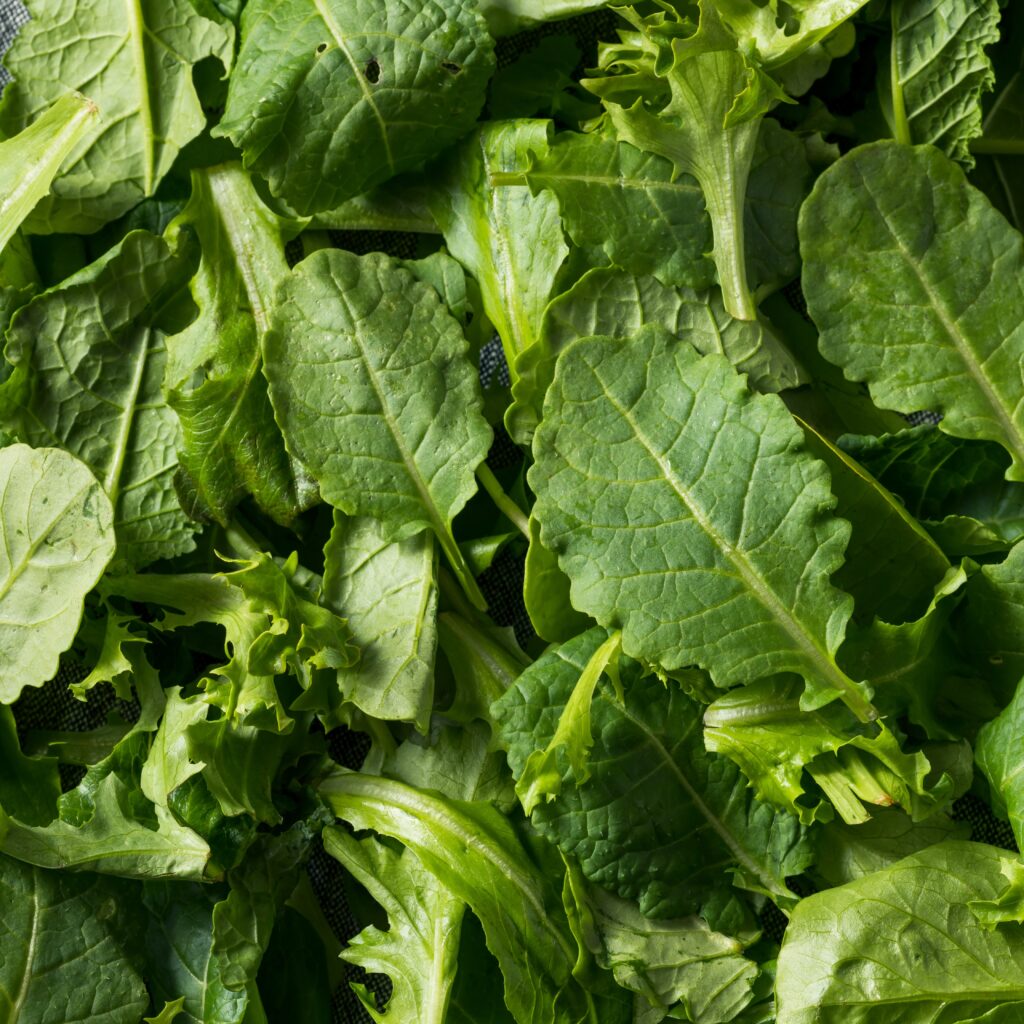
Capsaicin’s Role in Mental Health
Studies show that consuming more spicy food could reduce symptoms of depression thanks to the compound capsaicin which is found in chili peppers. Capsaicin sends signals to pain receptors in the brain. In response, your brain releases dopamine and endorphins to soothe the perceived pain, making you feel something similar to a “runner’s high.” So, you can get endorphins from eating rather than exercising! Sounds too good to be true.
To incorporate an element of spice into the salad, I made a Habanero Vinaigrette using Pasolivo’s Habanero Olive Oil, Sweet Habanero Vinegar, and a pinch of cayenne. Any other preferred spicy dressing here would do just fine, although the extra anti-inflammatory health benefits from quality olive oil round out this recipe nicely. Not to mention the probiotic properties of raw fruit vinegar coming from the Sweet Habanero Vinegar.
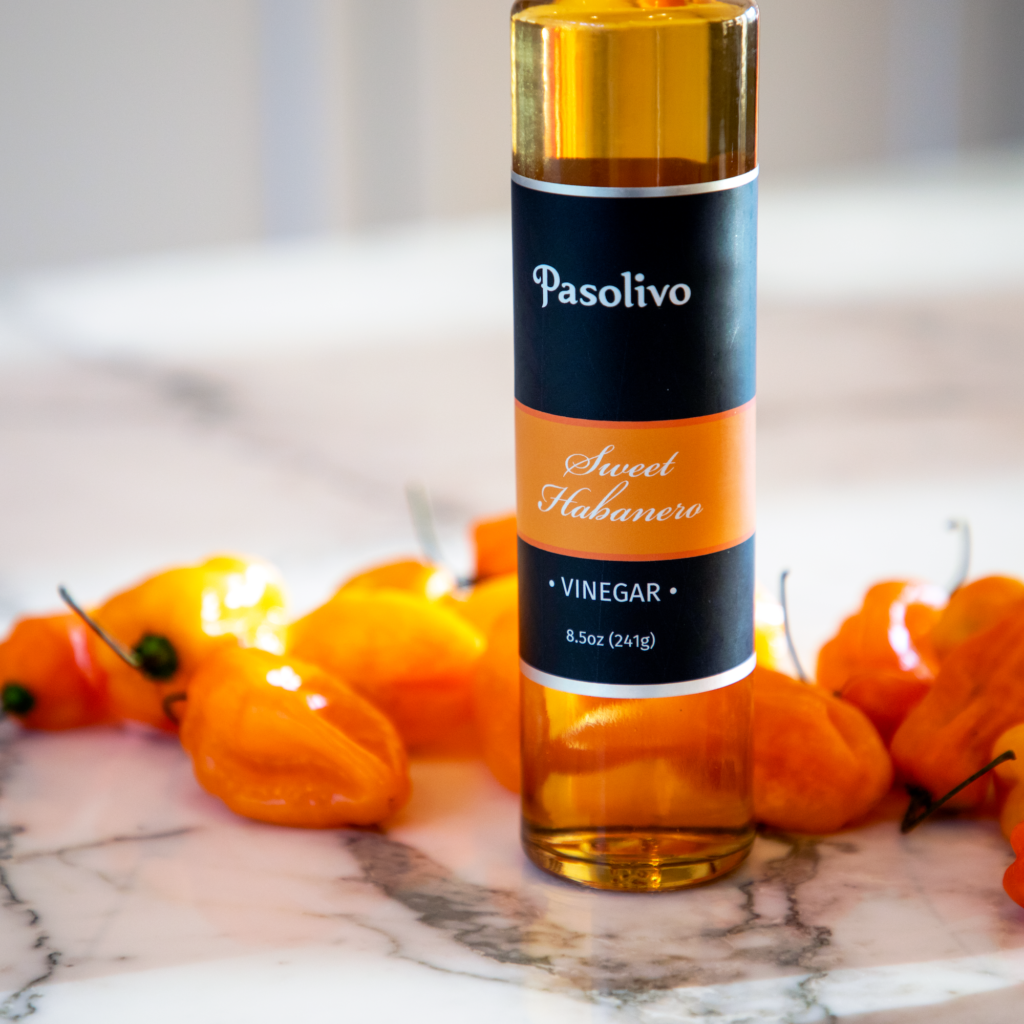
The Power of Omega 3s
Omega 3s are primarily known for supporting heart health, but they also have incredible anti-inflammatory properties. Following an anti-inflammatory diet has wonderful mental health benefits. Current research shows a strong correlation between a pro-inflammatory diet and depression. According to a meta-data analysis from China, a pro-inflammatory diet increases the risk of depression by 25%. So what foods are inflammatory? The main culprits are:
- Sugar
- Processed meats
- Refined carbohydrates
- Alcohol
- Trans fats
Limiting one’s consumption of these foods can drastically improve overall health. To counteract the effects of inflammatory foods, go for ingredients high in Omega 3s. Salmon is an excellent source of Omega 3s, with up to 4,500 milligrams per serving. Other foods to incorporate into your diet for anti-inflammatory properties include:
- Olive oil
- Tomatoes
- Dark leafy greens
- Nuts, especially walnuts
- Fruit, especially berries
Not only is the salmon in this recipe anti-inflammatory, but so is the kale, pepitas, and the Pasolivo Habanero Olive Oil in the Habanero Vinaigrette.
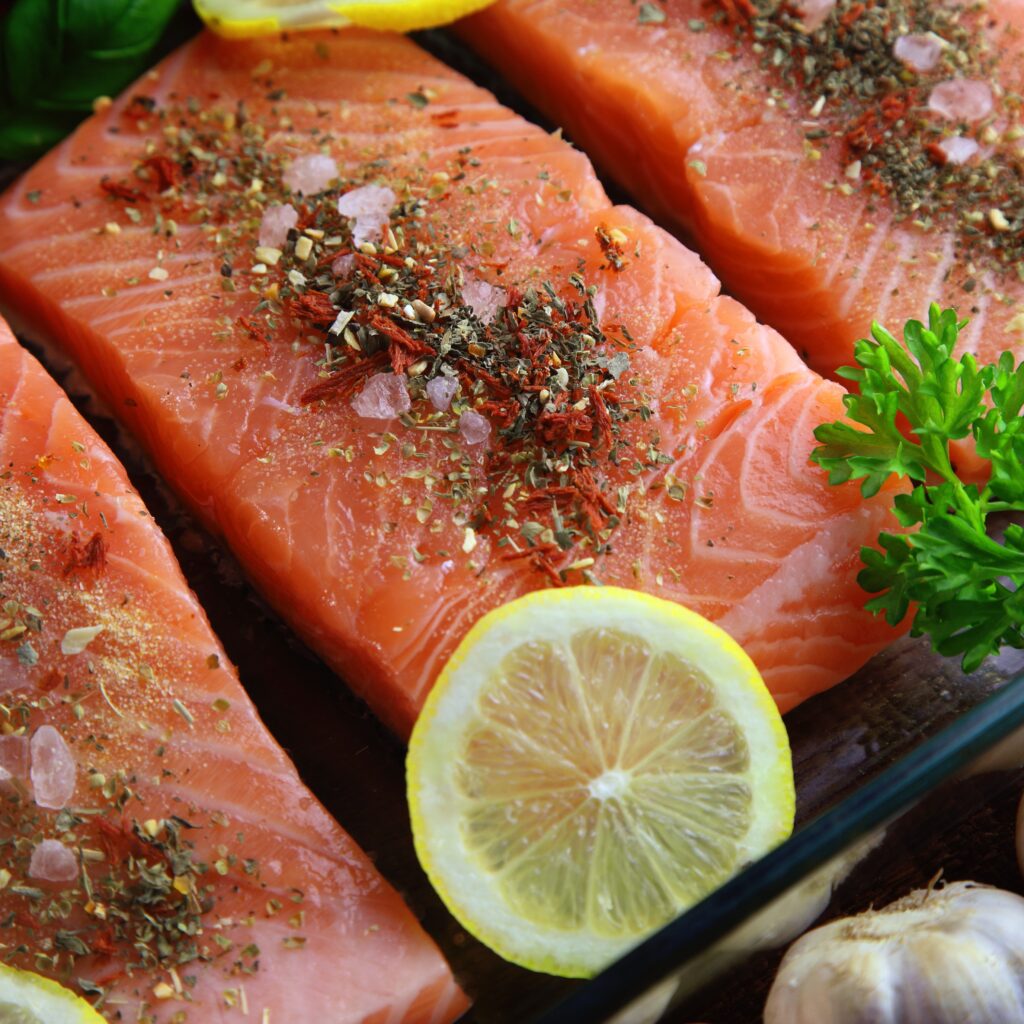
Protecting The Gut Microbiome
Around 95% of the serotonin in our bodies is created in our stomachs! Protecting one’s gut health can boost serotonin production. There are millions of microbes throughout our gastrointestinal tract– some that help us and some that hurt us. Eating certain foods to support the good bacteria and protect against the bad creates an ideal environment for serotonin production. Happy gut=happy human!
Probiotics are chock-full of these good microbes. They can be found in fermented foods such as yogurt, sourdough, kimchi, pickles, fruit vinegar, etc. I chose a miso-based marinade for the salmon as it’s a fermented soy product—both an excellent source of probiotics and tryptophan. Sourdough croutons were also included.
Good gut health also includes the consumption of prebiotics. Prebiotics are fuel for the good microbes. Fibrous foods such as whole grains, fruits, and vegetables are great sources of prebiotics. The kale, red onion, pepitas, and edamame contribute lots of fiber to this salad.

Throw It All in a Bowl
Combine all the ingredients above and you’ll have an incredibly nutritious meal that soothes both your mind and body, leaving you happy and satisfied. Get the full recipe here.
May we all find more joy in life through delicious, nourishing cuisine! Good luck on your wellness journey.
Sources:
- The Health Benefits of Spicy Foods
- Foods That Fight Inflammation
- Omega-3 Fatty Acids: An Essential Contribution
- The Worst Diet for Depression
- Prebiotics vs. Probiotics: What’s the Difference?
- Serotonin
- Vitamin B12, Folate, and Homocysteine in Depression: The Rotterdam Study
- Effect of long-term supplementation with folic acid and B vitamins on risk of depression in older women
- Association Between Dietary Inflammatory Index and Mental Health: A Systematic Review and Dose–Response Meta-Analysis
- Omega-3 fatty acids for mood disorders
- What is Tryptophan?
- Top Foods High in Tryptophan
